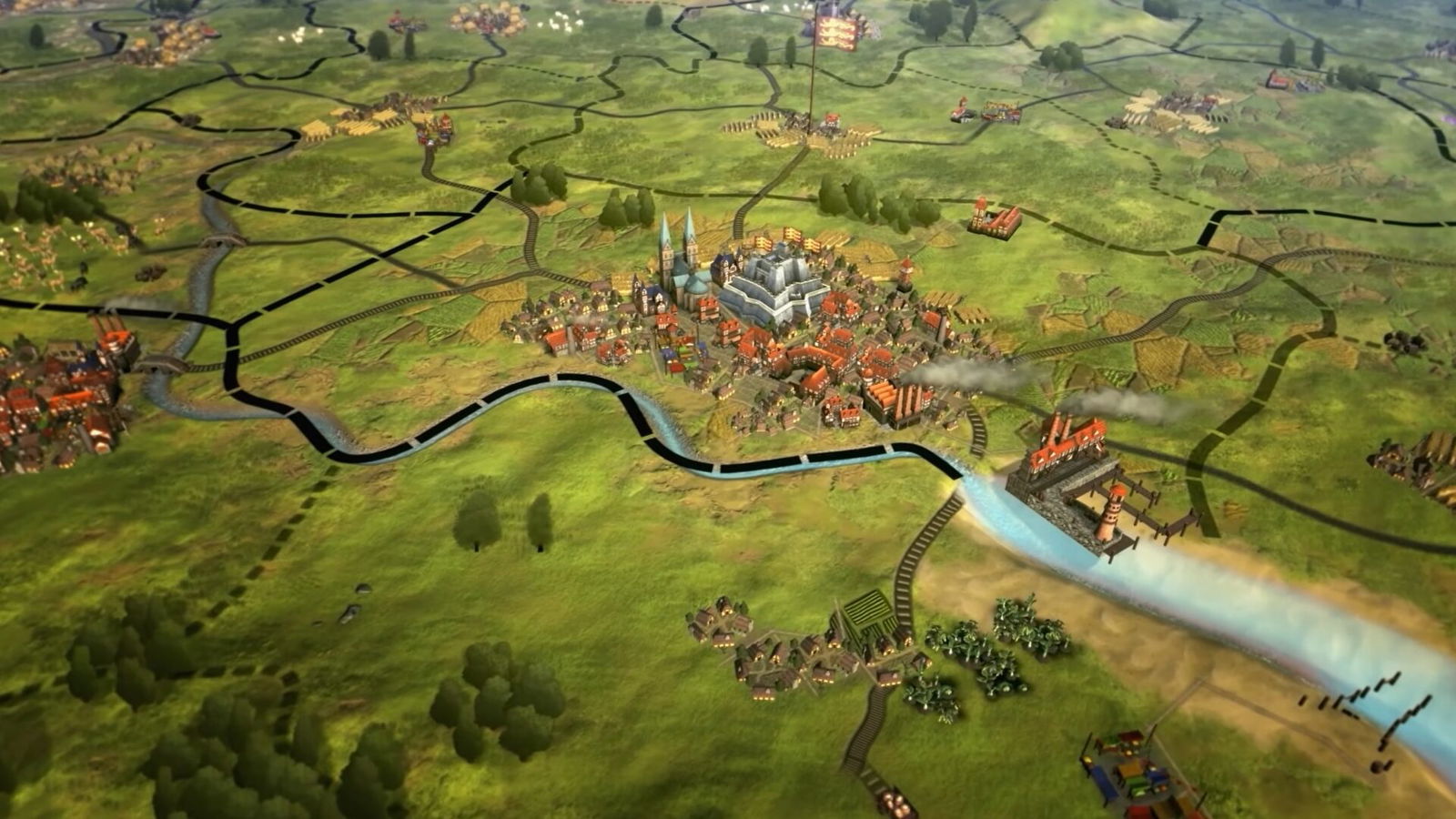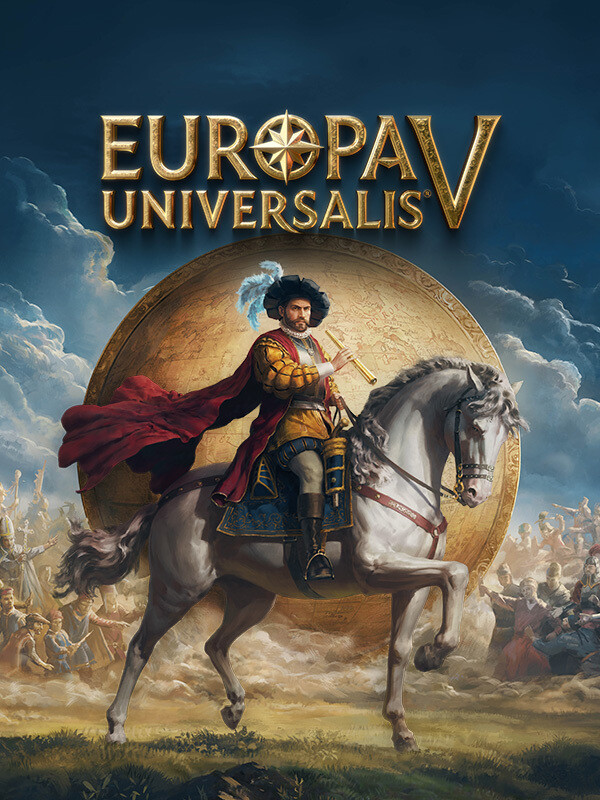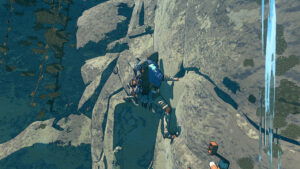In 1993, French game designer and producer Philippe Thibaut released Europa Universalis: a geopolitical strategy tabletop game in which six or five players shape the fate of a handful of major European powers beginning from the late 15th century up until the year 1792.
Given the extended time period covered, the almost 1500 counters and the bulky manuals that came with it, Europa Universalis has a reputation for being monstrously complex and time-consuming, with some full playthroughs purportedly taking around 60 hours or more.
Nevertheless, the board game turned out to be a hit, and so, Thibaut decided to iterate on Europa Universalis. In the years that followed, Thibaut partnered with Sweden-based video game developer Paradox Development Studio (PDS) in order to release a PC adaptation of Europa Universalis. Thibaut likely saw an ideal partner in PDS due to their work on the Svea Rike series of video games, which were based on an award-winning board game of the same name and which covered the political and cultural events in Northern Europe from 1523 to 1818.
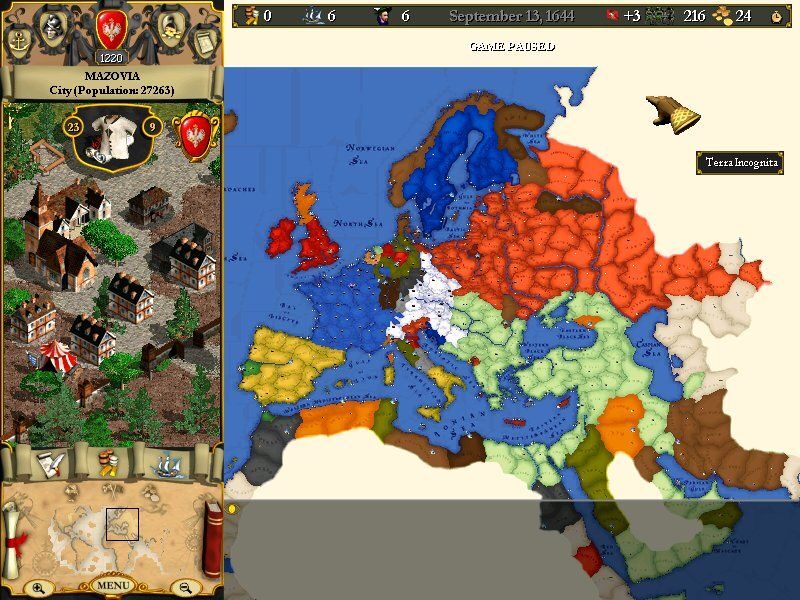
Europa Universalis, the video game, was originally released by Thibaut and PDS in late 2000 in Germany and Sweden, with launches in North America, the UK and Australia the next year. The PC adaptation retained almost everything that made the board game unique save for two crucial distinctions: it favoured real-time (with a pause!) over turn-based gameplay and it was open-ended, meaning that there were no formal victory conditions, even if the game did in fact keep score.
The real-time gameplay and ‘open-endnessness’ core to Europa Universalis would go on to influence not only all of the games released in the franchise so far, but also the other grand strategy series such as Crusader Kings, Victoria and Hearts of Iron released by PDS.
Fast forward to 2025, when, after four mainline and one spin-off Europa Universalis titles, Europa Universalis V is finally here. The latest entry, however, has the unenviable task of following in the footsteps of 2013’s Europa Universalis IV, the best game in the series and definitively one of the best strategy games ever, thanks also in part to years of support through transformative DLCs from release up until last year.
“Like the board game and video games before it, Europa Universalis V is a grand strategy game which invites players to ‘master the arts of war, trade, diplomacy, and government’…”
Thankfully, developing Europa Universalis V is Paradox Tinto, a splinter Paradox studio based in Sitges, Catalunya, which has been responsible for expanding Europa Universalis IV since 2020 and which is led by one of the developers of the very first Europa Universalis and the director of Europa Universalis IV, Johan Andersson. Under Andersson’s stewardship, Europa Universalis V seeks to both stick to the formula that’s worked so well for so long while also taking big steps in a new direction: an ambitious task, to be sure, but it’s not by coincidence that the game’s tagline is ‘Be Ambitious’. The result is a title that achieves its mission statement in spades, even if problems which have plagued Europa Universalis in general, such as insufficient onboarding for both new and returning players and unfavourable comparisons to more content-rich entries in the franchise remain present.
Like the board game and video games before it, Europa Universalis V is a grand strategy game which invites players to ‘master the arts of war, trade, diplomacy, and government’ and which allows players to take control of one out of incredibly many countries and guide through a period of mass colonisation and conquest by European powers (hence the name).
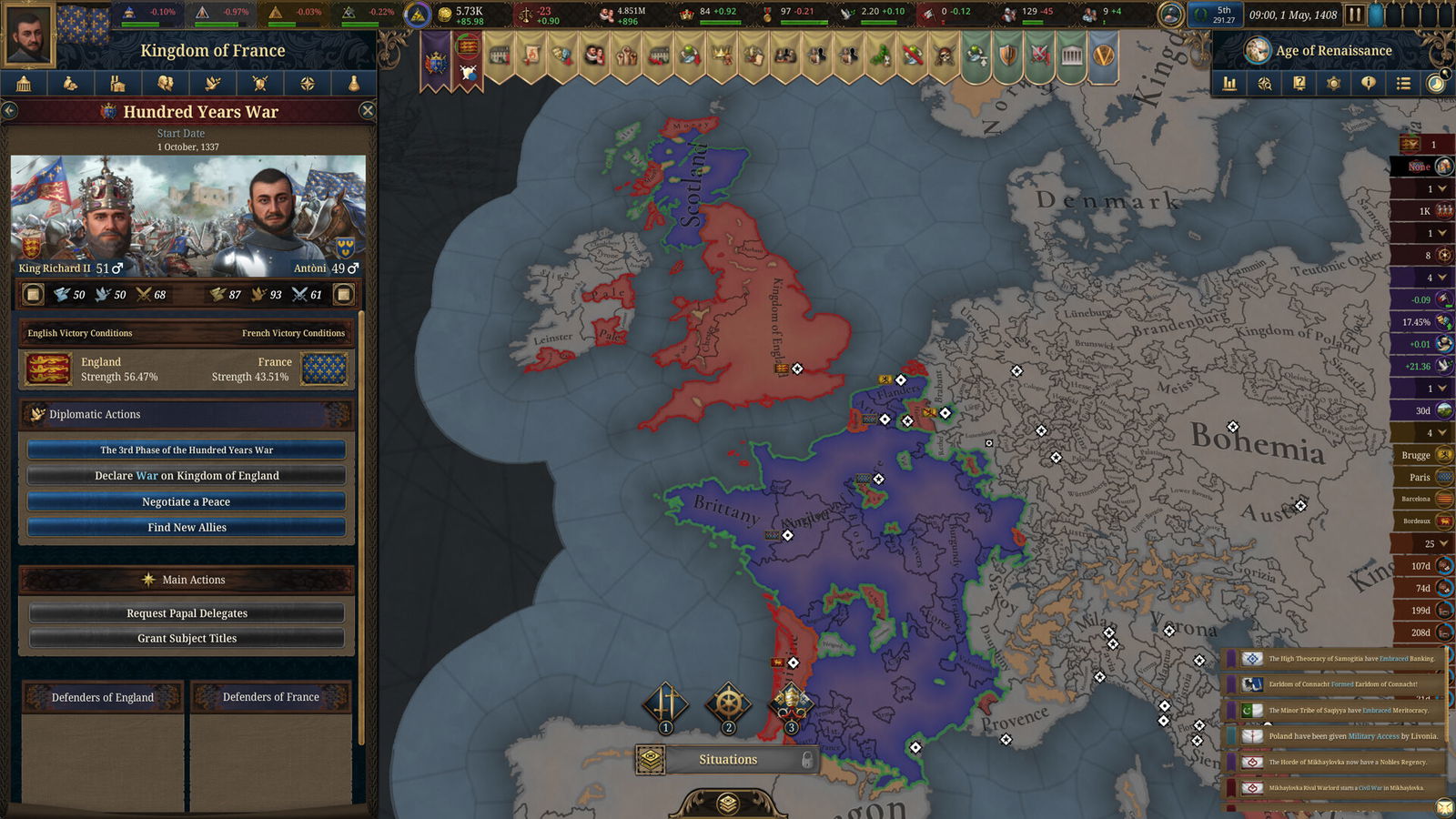
However, in a departure from series tradition, the start date for Europa Universalis V is now April 1, 1337, the earliest start date in the franchise so far. The date has been chosen deliberately for the challenges it might bring to players as ‘The Hundred Years’ War’ (which actually lasted 116 years) between the French and the English is just about to destabilise parts of the ‘old continent’, ‘The Black Death’ is about 10 years away from spreading throughout Eurasia and North Africa and the thriving Yuan dynasty in China is thirty years or so away from falling.
On the other hand, Europa Universalis V ends on 31 December 1836, just a few months before Queen Victoria became monarch of the United Kingdom; her coronation serving as the beginning of what historians call the Victorian era: a period in time in which Great Britain, and Europe after it, transformed from a rural, agricultural society into an urban, industrial one.
The early start date in Europa Universalis V does slightly overlap with the latter “events” of PDS’ Crusader Kings III, which allows players to change the course of history starting from 867, 1066 or 1178 up until 1453, but, if anything, those playing both Europa Universalis V and Crusader Kings III, can see the same period in time play out from two different perspectives. Plus, Europa Universalis V aligns neatly with PDS’ Victoria III, which begins and ends in 1836 and 1936, respectively, which, in turn, leads into PDS’ Hearts of Iron IV, which begins in either 1936 or 1939 and concludes shortly after the end of World War II.
Something else that separates Europa Universalis V from its predecessors is the extreme detail which goes into the world map, which, in the view of those at Paradox Tinto, is the ‘most detailed and accurate map ever for a grand strategy game’. The numbers back this up completely, as, for example, the number of separate locations has shot up from 2,500 in the base release of Europa Universalis IV to a whopping 28,570 in Europa Universalis V.
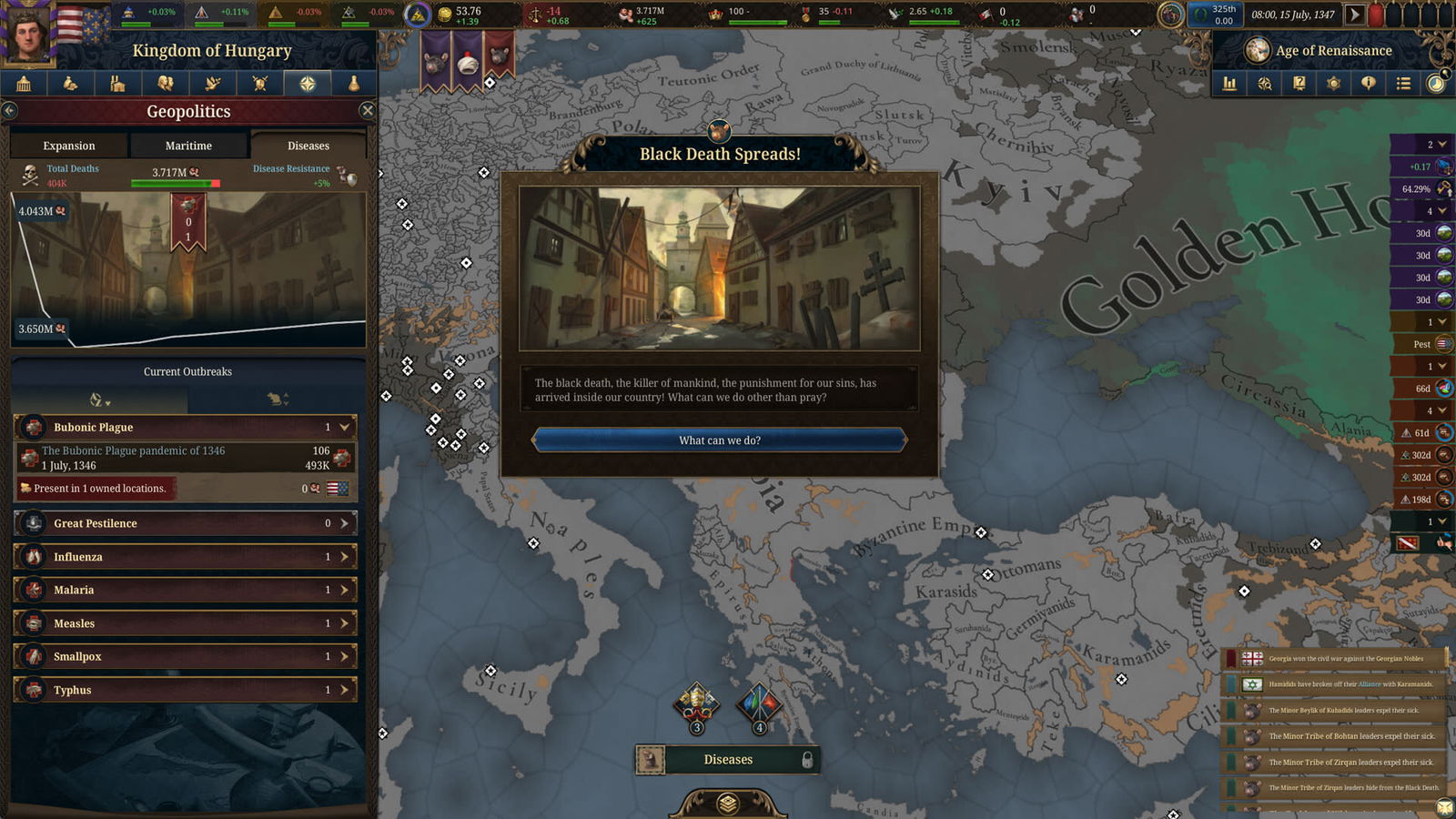
What’s more, the amount of countries playable has been increased exponentially, too, to an impressive 1,523 settled countries, compared to 970 in the most recent version of Europa Universalis IV. This really does give the impression that, from the relatively diminutive Republic of Mahajangā, now part of Madagascar, to the enormous Great Yuan, the aforementioned Mongol-led imperial dynasty of China, no stone has been left unturned in the pursuit of “open-endnessness” and historical accuracy alike.
There are some other features which, together, coalesce to make for a fresh experience in Europa Universalis V, such as a new military system, having to balance “the estates of the realm”, dramatically overhauled visuals, a sensationally rich and diverse soundtrack and more. The two that most deserve an extended mention are the dramatic world changing ‘situations’, like ‘The Turkish Threat’, which are scripted and mirror real world events and country-specific crises, such as a succession crisis, which happen as a result of the player’s decision(s).
For example, when playing as my beloved Scotland, when England was preoccupied with dealing with France and its allies as per ‘The Hundred Years’ War’, and, crucially, not with my nation, I was able to absorb some of the neighbouring Isles (Orkney, Mann, Shetland, etc.) into the Kingdom of Scotland. The long war ultimately did not end in Scotland’s favour, though, as in part due to my inaction and/or indifference, England had steadily conquered parts of France and eventually became the 7th strongest nation in the world.
And then, it happened: in the 11th or so phase of ‘The Hundred Years’ War’, after declaring peace with France for what was probably the umpteenth time, England turned its focus up north for the very first time and, in less time than I care to admit, the Kingdom of Scotland had been completely annexed and I suffered the ignominy of a swift game over. In my very next playthrough, still as Scotland, once ‘The Hundred Years’ War’ had started, I immediately allied myself with France, which, to the credit of these ‘situations’, dramatically altered the course of that playthrough.
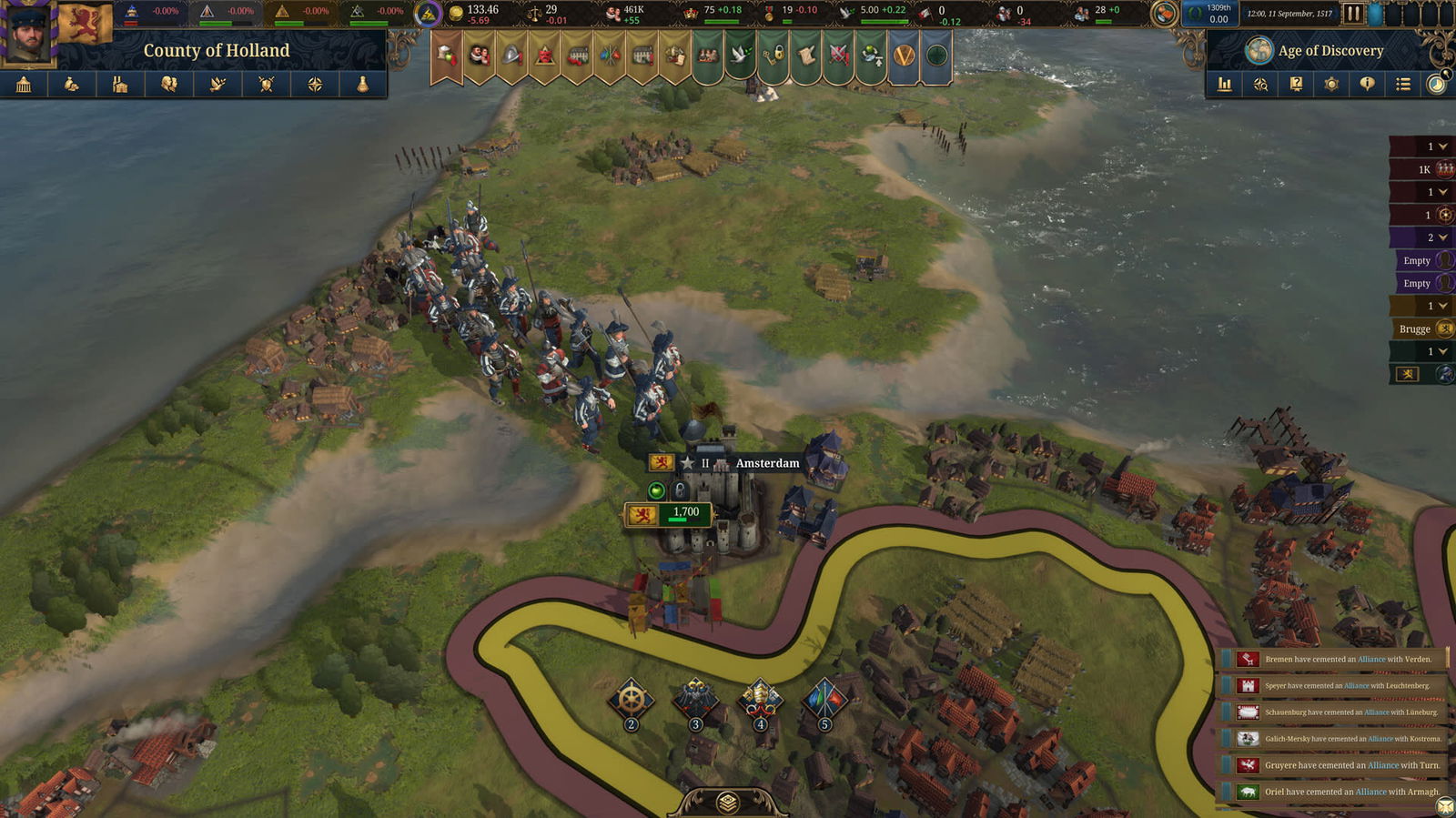
In fact, throughout the 40 hours or so of total playtime I’ve put into Europa Universalis V so far, which by the by, is absolutely not enough for a somewhat newcomer like myself to fully understand every single mechanic and feature that the game has to offer and is rookie numbers compared to the most hardcore of fans, I was constantly impressed by the seemingly endless amount of permutations available at any given time. I also really appreciated another new addition, namely task automation, which allowed me to automate, say, my nation’s economy, freeing me up to focus on the thing I enjoyed doing the most: force everyone, through diplomacy, not war, into becoming my subject.
However, despite task automation being a welcome change, it only slightly ameliorates a problem I’ve had with Europa Universalis V and with the other Europa Universalis games I’ve played in preparation for this review: the high barrier to entry. To give just a glimpse of my experience, as an avid Civilization fan, I (wrongly) believed that getting stuck in with Europa Universalis V after playing Civilization VII not too long ago would be like the difference between swimming in a lake as opposed to an ocean: same logic, bigger scale.
However, in reality, the experience was akin to learning how to swim in a pool of sharks, which is to say it was overwhelming and disorienting. Making matters worse is that the in-game tutorials are simply not elaborate enough. Outside of user generated resources available online, the way to learn the game is to pick one of the ‘recommended’ countries and stumble again and again for a few dozen hours.
As a solution for beginners, like myself, I would actually appreciate more automation, even at the expense of the game playing itself: a ‘beginner mode’ to complement the ‘Ironman’ mode already present. In any case, as acknowledged by Paradox Interactive CEO & President, Fredrik Wester, in an interview with Polygon from 2013, it is important to retain the depth of complexity of a grand strategy game while making it easier for a player to interact with. It’s just a shame that Europa Universalis V does not strike a better balance still.
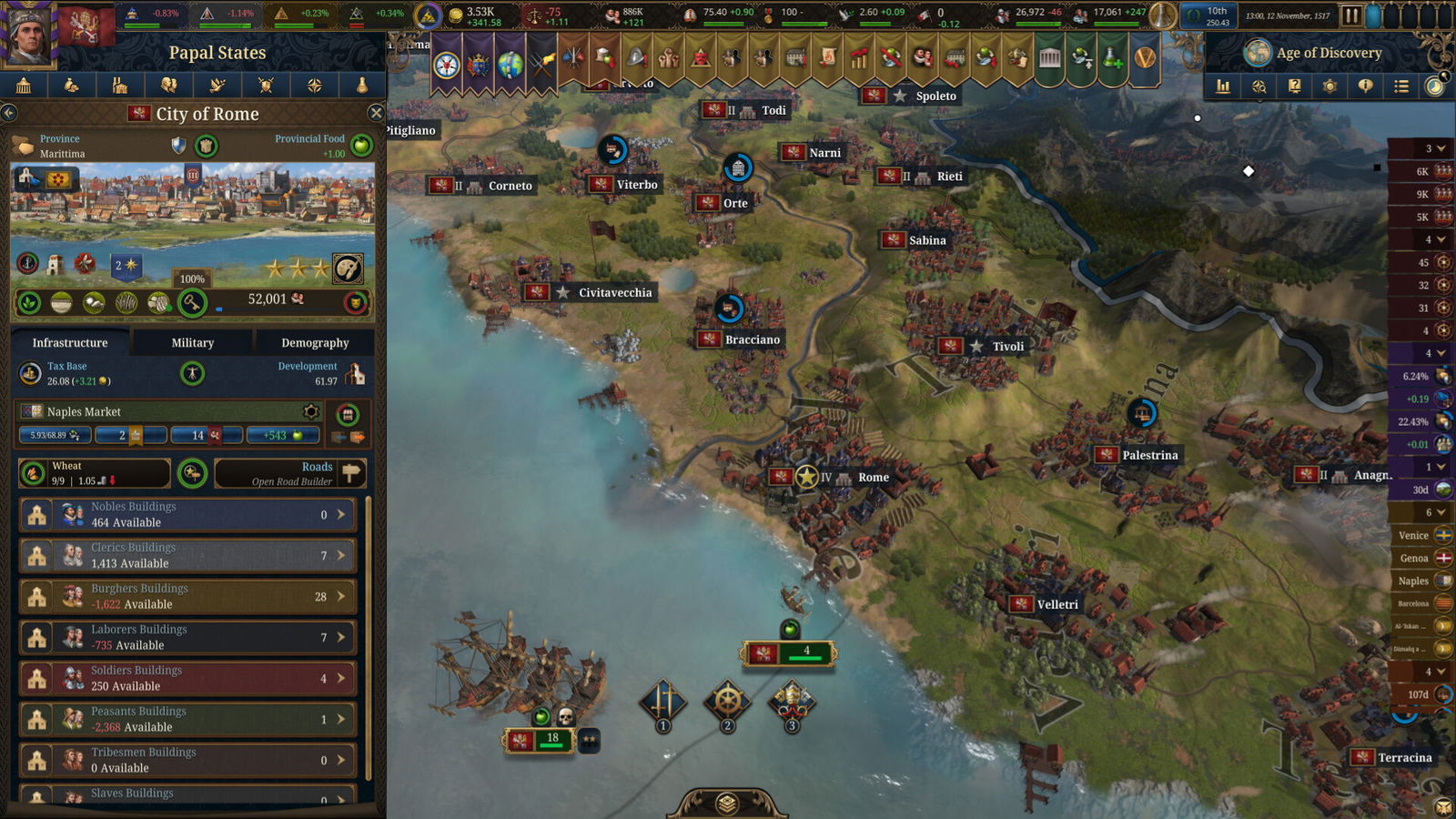
A different problem that Paradox games in general have is the perception that they launch in a “broken” and/or incomplete state only to be then “fixed” by paid DLC down the line, DLC which, in some cases, even gets “folded back into the base game”. With regards to Europa Universalis V in particular, the content that is here at launch seems complete enough after 40 hours or so, although just how much content is enough content remains difficult to assess objectively.
Likewise, what I am not so sure about is how it compares to other Paradox games at launch, for this is the only one I have played so early in its lifespan, but it compares very well to other references that come to mind and that I have played close to release, such as HUMANKIND. And yet, even as it is clear to me that Paradox Tinto poured a lot of love and effort throughout the 10 years of development time that went into Europa Universalis V so far, and which shows when it comes to the detail present in the world map, as explained earlier, it is evident that Europa Universalis IV, when taken into consideration with all of its DLC, provides a more feature-rich experience.
And, yes, even considering that the games are vastly different from each other, I still wouldn’t recommend Europa Universalis V over Europa Universalis IV with DLC to any newcomers. Instead, Europa Universalis V is a recommendation for those who, first and foremost, have played through (and enjoyed) quite a sizable amount of what Europa Universalis IV has on offer.
“Europa Universalis V is a recommendation for those who, first and foremost, have played through (and enjoyed) quite a sizable amount of what Europa Universalis IV has on offer.”
In terms of performance, Europa Universalis V has been rather stable on my good enough PC (RTX 3060, Ryzen 7 5700X3D, 32GB RAM) with only a handful of crashes here and there. Europa Universalis V is also certainly playable on a Steam Deck, although it is far from an ideal experience as initialising and loading saves can take a good while and the frames drop off a cliff when zooming out or when in wartime. It would also be nice for the game to be optimised for handheld play in general, although I do not see that as being a priority for Paradox Tinto at the moment.
For better and for worse, Europa Universalis V has exceeded my expectations as it is simultaneously way more fun than I had envisaged, while also being way more overwhelming and difficult than I had anticipated. Europa Universalis enthusiasts and/or Paradox veterans should find great enjoyment in swimming with the sharks but, everyone else should probably only consider jumping in after getting their feet wet with Europa Universalis IV.
Given Paradox’s track record, I’m confident that Europa Universalis V will become an incredible title for everyone, but, as it stands, it is a great time only for those most in the know. As far as I’m concerned, I’ll jump back in when the water’s just fine, perhaps after a significant update or two.
